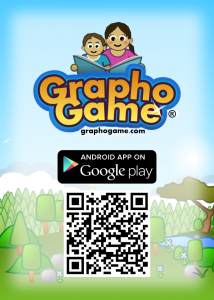The GraphoGame mobile learning game can teach the basics of reading in different languages. Our intention is to launch 10+ GraphoGame language versions starting from year 2016. The game is fun to play and engaging for the intended age group of 5 to 9 year old children.
 The Unesco Education for All Global Monitoring Report says that:
The Unesco Education for All Global Monitoring Report says that:
“Around 250 million children of primary school-age are not reaching a minimum learning standard”
All these children could get a great start by learning to read with our GraphoGame method! Now, how cool is that?
And what we have in our hands is not just a vision or a “minimum viable product”. The method is already in use in Finland since 2007, with more than 300 000 registered users. The Finnish little brother of GraphoGame is called Ekapeli, the “first game” that all Finnish children use in school or at home to learn the basics of reading. The service is supported in Finland by the Ministry of Education and Culture.
Now you have the opportunity to meet us in Helsinki, Finland, Slush this wednesday 11.11.2015 at 16:00-18:00 at the demo area A1-A2.
And please sign up to our newsletter for upcoming releases!
